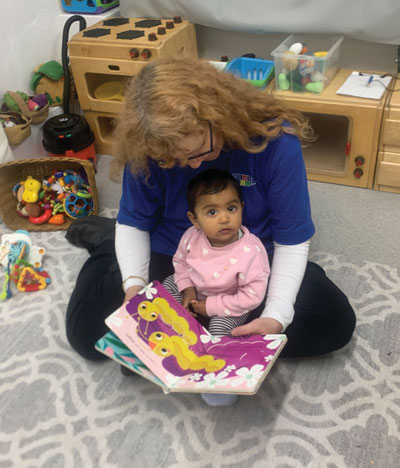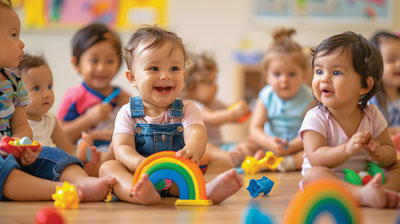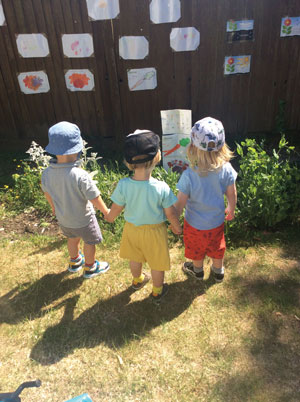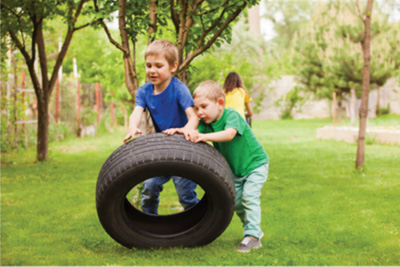
Toilet training children a year earlier could solve a host of issues in the education and health service and improve children’s overall health and wellbeing – so why aren’t policymakers pushing forward measures to support families doing it sooner?
ERIC, The Children’s Bowel & Bladder Charity, with support from Kindred Squared and Jodie Gosling MP, recently hosted a Parliamentary roundtable discussion bringing together key stakeholders in early years, education and children’s health and social care, to discuss the huge impact delayed toilet training is having on children’s lives. The discussion centered around the significant opportunities that exist to improve children’s health, social care, education and wellbeing by toilet training earlier.
The charity is pushing for clear guidance around toilet training, greater benchmarking of children’s progress, and standardised training for professionals supporting families in early years (including health visitors and early years practitioners).
Over the last two generations, the average age that children are being toilet trained in the UK has risen from 12-18 months, to an average of around three or even four years today. Later toilet training increases the risk of developing wetting and soiling issues later and also prevents the early identification of bladder and bowel problems.
The impact is profound across education, health and social care:
• A staggering 1 in 4 children start school still not toilet trained.
• 90% of teachers have at least one child in their class who is not fully toilet trained.
• On average 2.4 hours of teacher time is lost every day supporting children who are not school ready to catch up – directly affecting educational outcomes for all children in the class and hampering the Government’s mission to ensure children start school ready to learn.
• Hospital admissions for childhood constipation (which can be exacerbated by delayed toilet training) have increased by 60% over the past decade (over 44,000 children last year).
The charity argues that if children were toilet trained a year earlier, it would improve outcomes for children, save children’s health and education services time and money, and reduce the environmental impact of nappies going to landfill. The potential positive impacts are significant:
• Reduce the social and emotional impact of delayed toilet training on the child: Two thirds of teachers (65%) and 58% of parents agree that not being ready for school when starting Reception could have long term impacts on a child’s success in later life. Ensuring they are toilet trained well in advance of starting school means they’re less likely to feel embarrassed or be ostracized from their peers, which can have a profound effect on their early days in school.
• Better education: If they didn’t have to deal with children who weren’t toilet trained, teachers could save up to 456 hours – that’s around 10 days of extra teaching time they could spend focusing on improving children’s education over the academic year.
• Better health: There is a link between delayed toilet training and childhood constipation. Currently 1 in 3 children suffer from constipation. In a single year, the NHS spent £168 million treating constipation.
By preventing a number of children from suffering from this, it could also save the NHS a significant amount. The cost of treating constipation is equivalent to funding 7304 newly qualified nurses for a year.
• Better for the environment: It’s estimated that the average child uses between 4,000 and 6,000 disposable nappies before they are toilet trained, and the UK disposes of around 3bn disposable nappies annually. If every child was toilet trained one year earlier, we could save between 5.3bn – 7.1bn nappies from going to landfill.
• Cost savings for parents: Parents in the UK can expect to spend approximately £1,000 on disposable nappies per child from birth to toilet training. This translates to about £400 per year for disposable nappies. So by toilet training earlier, they could save themselves up to £400 – that’s equivalent to about two weeks of nursery fees in some parts of the country, or perhaps a UK family holiday.
Siân Wicks, CEO of ERIC, The Children’s Bowel & Bladder Charity said: “ERIC calls for children to be toilet trained a year earlier. We have reviewed the evidence base, examined the impact on the child and family that delayed toilet training has. It is time to reduce the stigma. It is essential that we raise the profile of this debate. We are calling for clear national guidance, both for families and professionals, particularly for those who support children in early years.There has been clear guidance on issues like breastfeeding and sleep, but not on toilet training; yet, as we’ve seen, this is causing a host of issues that are costing families, society and the government dearly. There needs to be a greater sense of collective responsibility for children’s bowel and bladder health, and all stakeholders across government, children’s health, education and social care need to work together to support families to reach this milestone sooner.”
Felicity Gillespie, Director of Kindred Squared said: “Our research shows that parents are keen for clear, simple and evidence-backed advice. That’s why we’ve worked with the early years sector to produce startingreception.co.uk. The medical evidence is clear; unless there is a diagnosed medical need, children are best served by being out of nappies between 18 and 30 months. We welcome Eric’s efforts to spread this information as widely as possible!”
Jodie Gosling, MP, said: “Too many children are starting school feeling anxious, isolated, or even ashamed – simply because they haven’t been supported to reach a basic developmental milestone: being toilet trained. The removal of Sure Start provision has left families without the necessary infrastructure to learn and thrive. This isn’t just about nappies. It’s about dignity. It’s about confidence. And it’s about giving every child the best possible start in life. We’ve heard today how delayed toilet training is affecting not just individual children, but their families, entire classrooms, our NHS, and our environment. The evidence is clear – and the cost of inaction is too high. This is an issue that requires urgent, coordinated action. We need clear national guidance, better training for early years professionals, and a shared commitment across government to support families in reaching this milestone sooner. Because when we help children thrive from the very beginning, we all benefit.”
Alison Morton, CEO of Institute of Health Visiting, said: “Gaining mastery of your own bladder and bowel function is an important milestone in a child’s development. However, toileting practices and advice have changed over the years, and are heavily impacted by marketing tactics to delay toileting and prolong the use of nappies under the guise of ‘waiting until children are ready’. This has a human, financial and environmental cost. I encourage all professionals to maintain high expectations for the ability of all children, including those with disabilities, to achieve the skills for toileting. Unnecessary delays and low expectations are limiting children’s life chances and can have lifelong consequences. Getting this right is not really a choice, it is fundamental for children’s dignity, safety and quality of life”.
For further information please visit www.eric.org.uk




















